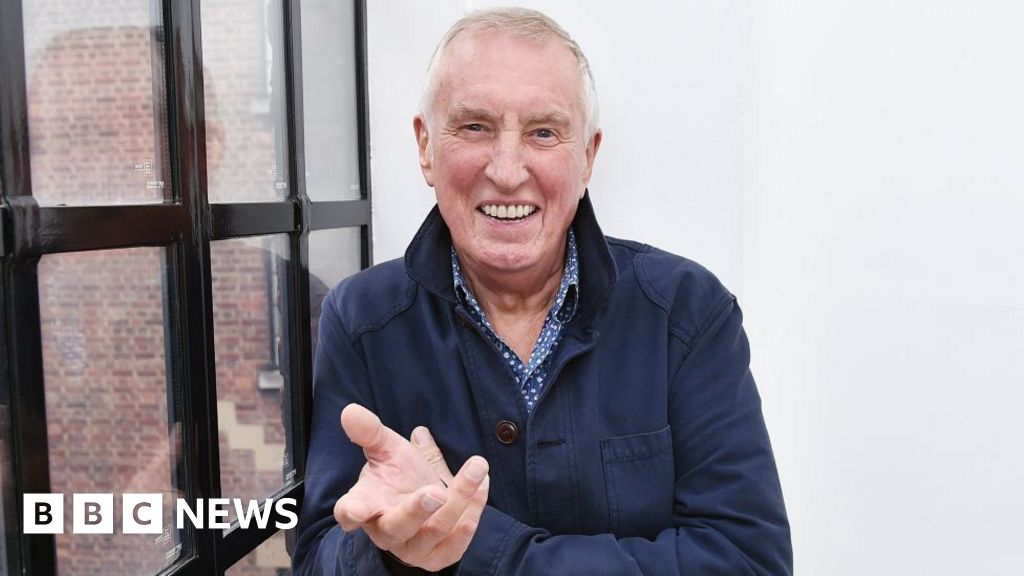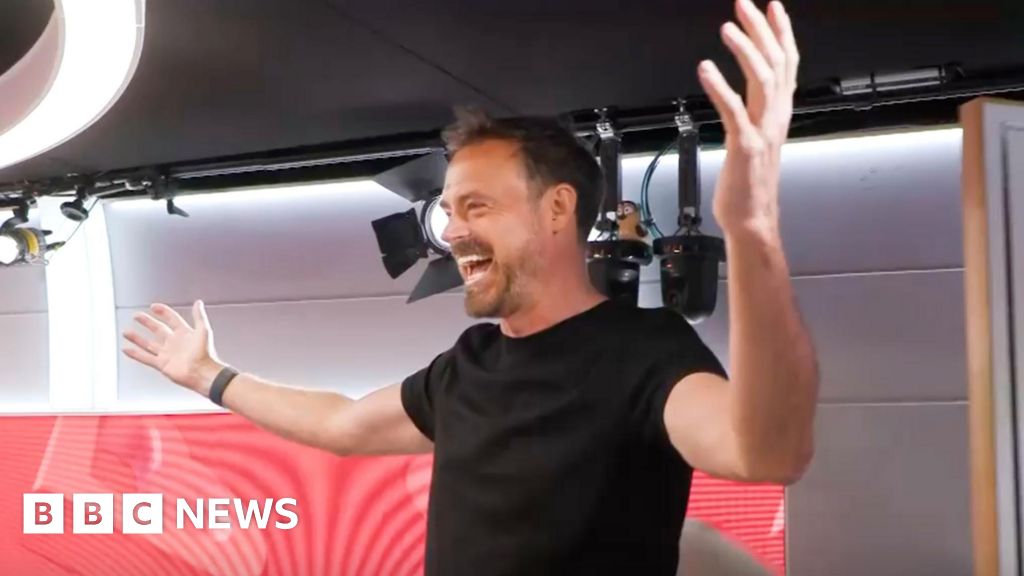ARTICLE AD BOX
Michael Flatley reminisces on his 1994 Riverdance performance
By Charlotte Gallagher
Culture reporter
It is 1994, Bill Clinton is US President, the Spice Girls have just got together and Brazil are about to become World Cup champions.
Ireland is on a winning streak too, not in football, but at the Eurovision Song Contest.
The annual event was being hosted in Dublin and Ireland, once again, took home the trophy.
But it was the interval act that made the biggest impression: Riverdance, with a then-unknown dancer, Michael Flatley.
"My goodness that night brings up a lot of memories," he tells BBC News. "It was a unique evening, it was very, very special."
We have met to talk about 30 years since that performance and the impact it had on his life and Irish dancing.
Before that night, Irish dancing had been seen as very traditional, with strict rules about what was acceptable. One rule was that dancers should have a rigid upper body and keep their arms straight by their sides.
A childhood dance teacher of Flatley's even tied his arms together with a belt, something he says made him determined to dance how he wanted to.
So when he burst onto the stage, with his arms in the air, it was something people had never seen before.
It was Irish dancing, but with influences of ballet, flamenco and Fred Astaire.
Flatley, 65, choreographed the routine, but it could have been much different.
"I don't think I've ever mentioned it before," he says, "but right before I went on stage, they came to me beside the stage and said: 'Please, we're getting calls from all the dance teachers. Please don't wave your arms around, you're going to make us look ridiculous in front of the world, so can we just ask you this time whatever happens, can you keep your arms down?'
Image source, Getty Images
Image caption,Michael Flatley started his own Irish dance show, Lord of the Dance
Flatley's instincts were right, as his performance with Jean Butler and dozens of other dancers eclipsed the rest of the night.
The host broadcaster RTÉ immediately started receiving calls from viewers who wanted to buy a recording of the performance and book tickets to see them.
The BBC broadcaster, Sir Terry Wogan, who was commentating for the UK, exclaimed: "Good grief. Small hairs rising on the back of every Irishman's neck."
Riverdance had made Irish dancing cool.
Dance steps created on construction sites
For Flatley, who had worked as a builder in the US, the reception was more than he could have imagined.
"We nailed it, my dream," he recalls. "For years, I was working on construction sites and digging foundations in Chicago. During those freezing cold winters, I was creating those steps, in my dance style, in my mind that whole time. That's what got me through the hard, laborious work."
I ask if he told his friends on the building site that was what he was thinking about.
"No! The big, muscly guys? Better not mention that I'm dreaming about dancing, probably not the right thing to do," he laughs.
People may have been wowed by Riverdance at Eurovision but Flatley says it was not easy growing up and wanting to dance.
"I got bullied at school terribly, so I know what young lads go through and it's trying, it's mentally difficult, it's stressful to have to walk into school and hope somebody doesn't say something negative to you."
After Eurovision, Riverdance was quickly transformed into an arena tour. Several years later Michael Flatley developed his own show, Lord of the Dance.
Both have been globally successful; Riverdance says 30 million people have seen their show, while Lord of the Dance says 60 million have seen their performances.
Flatley's legs were reportedly insured for £25m by Lloyds of London.
He says he hopes his career has made it easier for boys who want to dance: "If you look at our dancers now in Lord of the Dance, the men are so powerfully built, they've taken it to a whole new level."
Irish dancing is now one of Ireland's most successful exports. There are schools in every continent except Antarctica.
One teacher in Odessa in Ukraine told the BBC her dancers have tried to keep practicing even when one school was bombed and others have no electricity because of blackouts.
Irish dancers are also making an impact on Instagram and TikTok. The Gardiner Brothers (below) have more than a million followers, while Caidre have performed at The White House.
Like Michael Flatley, they mix traditional and modern dance steps and often to perform to contemporary music.
Music by Megan Thee Stallion, AC/DC, Usher and of course Taylor Swift all make appearances in their videos.
The BBC is not responsible for the content of external sites. YouTube content may contain adverts.
This new generation of dancers credit Michael Flatley as their inspiration.
We joined Michael when he met some young dance students at Cabe Academy in Castleknock, County Dublin.
"He is Irish dancing," one girl says, another adding: "It was an insane experience meeting him, we all look up to him."
Most hope they will one day dance professionally.
David McCabe, who runs the studio with his wife Ailsing, says as a young boy he did not tell anyone at school he was Irish dancing, until after the Riverdance performance in 1994.
He says: "When I saw Michael Flatley perform I just thought it was the most amazing thing I had ever seen. I just knew as soon as I saw that performance that that's what i wanted to do for the rest of my life."
Both David and Aisling McCabe performed in Lord of the Dance.
Michael Flatley retired from performing in 2016 and has suffered from cancer in recent years.
So how does he feel about that night at Eurovision, which changed Irish dancing and his life?
"To be honest with you, I'm delighted I'm even still here 30 years later, at the pace I was going I never thought I would be," he says.
"That night when Riverdance finished, on that last step of the feet, even I was blown away with the response. It was one of those moments in time and we were so blessed."

 8 months ago
53
8 months ago
53








 English (US) ·
English (US) ·